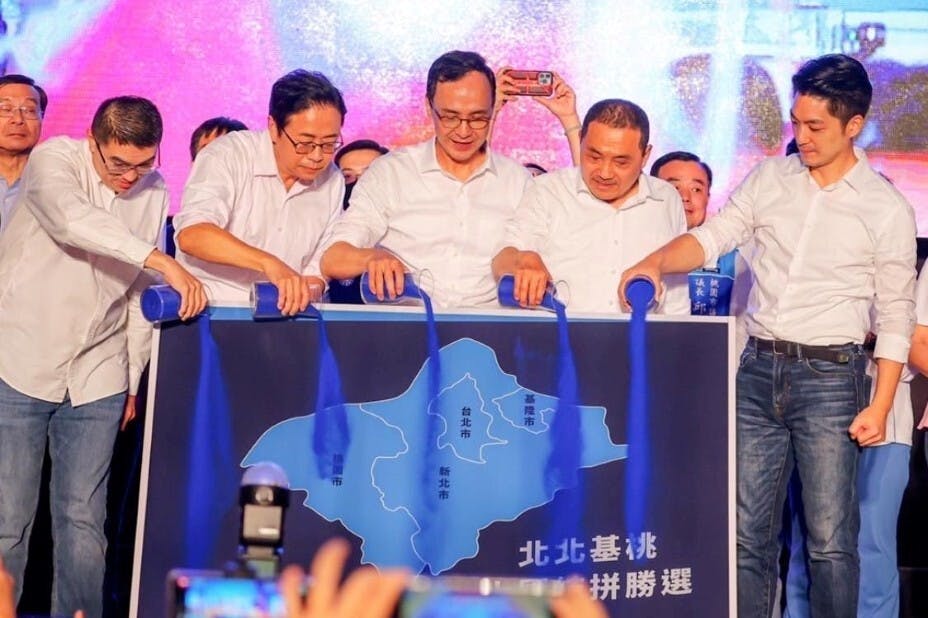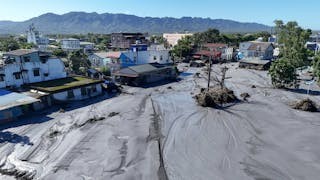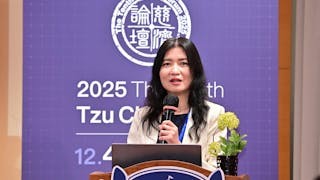在台灣最近的縣市長選舉中,國民黨復興對2024年總統大選具有重要的指標性影響。儘管政治是可能的藝術,選舉結果雖然不能預測,但在我們對台灣政治及其與大陸互動的政治分析中,2022年11月26日的「九合一」選舉具有政治意義,這是不能忽視的。
國民黨選民基礎大 得以重振聲威
首先,在舉行縣市長選舉的21個縣市中(除了嘉義市因有候選人過世,選舉延後到12月18日),國民黨贏得了13席,民主進步黨僅贏得5席,民眾黨的高虹安在新竹贏得市長席位,以及兩位無黨籍的獨立候選人奪得苗栗和金門縣長的席位。與2018年縣市長選舉結果相比,國民黨失去了一席,而民進黨失去了兩席。然而,就國民黨獲得的選票數量而言,它獲得了570萬票。相反,民進黨僅獲得470萬票、與國民黨相比,差距達100萬票。
儘管2024年的總統選舉將見證民進黨更強勢的回歸,但11月26日的選舉表明該黨明顯的失敗。民進黨主席蔡英文不得不在同一天晚上辭去黨主席的職務。
其次,國民黨的重振不僅有新的開始,特別是蔣萬安在台北市長選舉中以14萬1000票的巨大優勢擊敗民進黨的陳時中,還有強大的現任市長,特別是侯友宜在新北市以115萬票大勝得69萬3976票的民進黨林佳龍;台中市的盧秀燕亦以79萬9107票擊敗52萬4224票的民進黨蔡其昌。
上述結果顯示,國民黨在台北和台中地區的選民基礎非常強大,預示蔣萬安很可能在未來5到10年內被培養成國民黨未來的領袖。
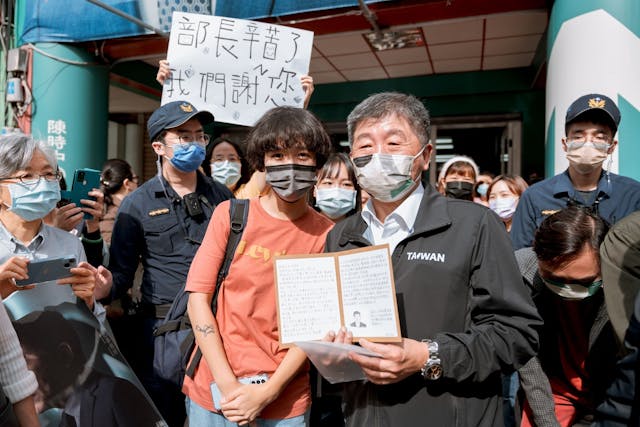
侯友宜欲爭大位 須條件成熟
從策略上來說,民進黨犯了一個錯誤,即提名年長的陳時中與蔣萬安競爭,而不是徵召年輕的林佳龍,後者被安排與最高人氣的新北市國民黨候選人侯友宜競爭。台北市和新北市兩位民進黨候選人的失敗,也顯示了民進黨謀士的過度自信,誤判國民黨在兩地的據點薄弱,沒有他們在選民中的「鐵票」。
最重要的是,侯友宜和盧秀燕的出色表現,已經讓外界傳言兩人可能在2024年的總統大選中聯手,形成可以匹敵任何民進黨總統候選人的強勢聯手票源。
值得注意的是,侯友宜曾公開表示不排除參加2024年總統大選的可能。然而,從策略上來說,國民黨或應避免給人一種不成熟和太心急的印象,即侯友宜對總統大位的興趣遠遠超過市政──這種印象已經傷害過一度是國民黨政治新星的韓國瑜。2018年11月他當選高雄市市長,但很快便角逐2020年台灣總統選舉。2020年總統選舉失利,導致韓國瑜2020年6月被罷免市長,標誌着這位國民黨新星的起跌。因此,國民黨內部需要汲取韓國瑜的教訓。即使侯友宜逐漸被培養成下一屆國民黨總統候選人,黨內也只能在最後階段和條件成熟時宣布這一消息,而不會損害國民黨新星的形象。此外,由於國民黨歷來受派系鬥爭困擾,如果該黨希望在台灣複雜的島內政治中重新奪回總統大位,內部團結將是必須的。
第三,關於是否能夠推動修憲通過的所謂「18歲公民權」台灣公投,未能獲得一半選民同意的必要法律門檻(這意味着這次要962萬票)。只有565萬多張同意票,結果意味着,有41萬年齡在18至20歲之間的台灣選民,將不得不等到20歲,才能擁有投票權。「18歲公民權修憲公投案」不獲通過,對執政的民進黨來說是一次嚴重的挫折。
第四,在2022年縣市長的選舉結果中,民進黨「抗中保台」的策略完全失敗。美國眾議院前議長佩洛西(Nancy Pelosi)於8月初訪問台北,以及解放軍在台灣周圍水域進行軍事演習後,加上中共二十大重申主台灣主權屬於中國大陸,在兩岸統一的問題上,不能完全排除對台灣使用武力。愈來愈多台灣民眾顯然擔心民進黨反大陸的政策和立場;愛台灣的台灣選民不想見到台灣海峽有任何衝突。因此,民進黨「抗中」的政策無疑是給2022縣市長選舉候選人幫倒忙。
客觀地說,2020年總統大選中,民進黨的勝利正是受益於2019年下半年香港的政治動盪和混亂的結果。隨着香港的政治秩序恢復,以及北京─台北的關係持續緊張,民進黨顯然要吞下2022年「九合一」選舉的苦果。
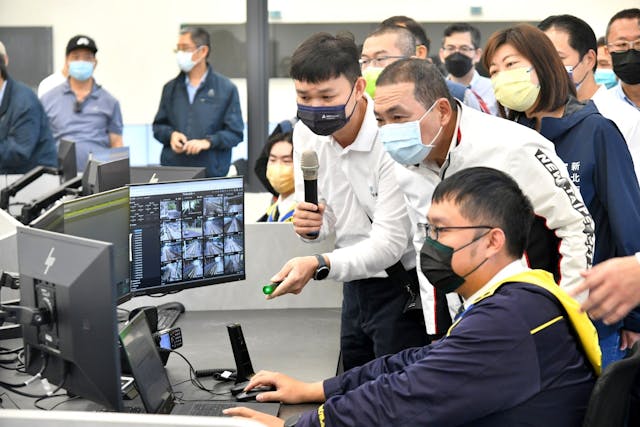
大陸對台政策強硬 促選民改投國民黨
當然,政治一天也嫌長,從現在到2024年總統大選,國民黨是否會保持勢頭尚待觀察,這是一條漫長的道路,具有許多不確定性、複雜性和波折重重。
第五,可以肯定地預測,從現在到2024年總統大選,北京─台北的關係將不會變得更好,這是由於民進黨不承認「九二共識」,部分原因是大陸接受「九二共識」的立場堅定。因此,除非國民黨一方爆出醜聞,否則民進黨受歡迎的程度將不可能提高。如果這種分析是準確的,那麼民進黨和國民黨互相挖掘政治醜聞,以及2024年總統選舉之前的政治活動將變得愈來愈重要,這方面需要仔細觀察。
有趣的是,大陸對台灣採取的立場愈強硬,台灣選民支持國民黨的趨勢就發明顯。如果這一觀察是準確的,那麼從現在到2024年總統大選,大陸可能會維持對台灣的強硬政策。
同樣,民進黨對大陸的政策愈強硬,大陸對台灣的政策就愈強硬。鑑於民進黨對大陸的強硬政策持續,可以肯定地預測,大陸將繼續對台灣採取強硬的姿態。
觀察誰將在2024年總統大選中領導民進黨會很有趣。如果無論哪位領袖都不能在黨內外獲得足夠的支持,那麼民進黨的前景肯定會受到影響。
塑造國民黨發展的最終因素將是它可以使黨員恢復活力的程度。蔣萬安的勝利在政治上是重要的。他的形象是年輕、有魅力、專業、平民化、有新鮮感和重視家庭的候選人,使他贏得了大量選票。這樣的形象代表了整個國民黨的復興、復活和重生。從現在到2024年總統大選,作為反對黨是否可以而且將保持這種勢頭還有待觀察。
總之,2022年台灣的縣和市長選舉無疑顯示了整個國民黨的復興、復活和重生。在執政民進黨與大陸的緊張關係中,國民黨顯然是選舉的受惠者。但是,由於政治常常充滿了複雜性和不確定性,因此,國民黨是否能夠在2024年重奪總統權力,仍有待觀察。
KMT’s electoral resurgence and its implications for 2024 Presidential Election
The resurgence of the Kuomintang (KMT) in the recent local county mayoral elections in Taiwan has important directional implications for the 2024 presidential elections. Although politics is the art of the possible and although electoral outcomes can be unpredictable, the local elections on November 26, 2022 have political significance that cannot be neglected in our political analysis of Taiwan’s politics and its interactions with the People’s Republic of China (PRC).
First and foremost, of the 21 counties where mayoral elections were held (except for one county in Chiayi where the election is postponed to December 18), the KMT grasped 13 seats and the Democratic Progressive Party (DPP) merely acquired 5. The Taiwan People’s Party grasped one mayoral seat (Ann Kao in Hsinchu) and two independent candidates without party affiliation captured the seats in Miaoli and Kinmen counties. Compared with the 2018 county and mayoral election results, the KMT lost one position and DPP lost two positions. However, in terms of the number of votes gained by the KMT, it acquired 5.7 million votes. On the contrary, the DPP merely got 4.7 million votes – a gap of 1 million votes compared with the KMT.
Although the presidential elections in 2024 may witness a stronger comeback of the DPP, the November 26 elections pointed to its obvious defeat. DPP leader Tsai Ing-wen had to resign from her position as the party chair on the same night.
Second, the KMT witnessed the rise of not only new starts, notably Chiang Wan-an who won the mayoral election in Taipei by defeating DPP’s Chen Shih-chung with a wide margin of 141,000 votes, and also strong incumbents, specifically Hou You-yi winning 1.15 million votes over DPP’s Lin Chia-lung with just 693,976 votes in New Taipei City, and Lu Shiow-yen who grasped 799,107 votes defeating DPP’s Tsai Chi-chang with just 524,224 votes in Taichung city.
The results above showed that the KMT is electorally very strong in the Taipei and Taichung regions, with the implications that Chiang Wan-an will likely be groomed as the future leader of the KMT in the coming five to ten years.
Strategically speaking, the DPP made an error by nominating the older Chen Shih-chung to compete with Chiang Wan-an rather than utilizing the younger Lin Chia-lung, who was shifted to compete with the strongest KMT candidate Hou You-yi in New Taipei City. The failure of the two DPP candidates in Taipei and New Taipei City also demonstrated the overconfidence of the DPP strategists, who miscalculated that the KMT strongholds in two places were weak without their “iron votes” among the electorate.
Most importantly, the very impressive performance of Hou You-yi and Lu Shiow-yen has already generated rumors that both of them can team up in the 2024 presidential election, forming a strong joint ticket rivalling any DPP presidential candidate.
It is noteworthy that Hou You-yi publicly said that he would not exclude the possibility of participating in the 2024 presidential election. However, strategically speaking, the KMT may have to avoid giving an immature and early image that Hou would be far more interested in presidential politics than county affairs – an image which had already undermined the previously rising star Han Kuo-yu, who was popularly elected as the mayor of Kaohsiung city in November 2018 but who soon became the Taiwan presidential election candidate in 2020. His defeat in the 2020 presidential election led to his recall in June 2020, signaling the rapid rise and fall of the KMT star. Hence, the KMT party headquarters needs to learn from the lesson from the rapid rise and fall of Han Kuo-yu. Even if Hou You-yi is gradually groomed as the next KMT presidential candidate, the party headquarters will have to make such announcement only at the latest stage and at a ripe time without undermining the image of rising KMT stars. Furthermore, as the KMT has been traditionally plagued by factionalism, internal solidarity will be a must if the KMT wishes to re-capture presidential power in Taiwan’s complex domestic politics.
Third, the so-called Taiwan “referendum” on whether 18-year-old citizens would be able to vote by amending the constitution failed to acquire the necessary legal threshold of having half of the total electorate (meaning 9.62 million votes this time). Only 5.65 million votes cast their ballots for constitutional amendment, The result meant that 410,000 Taiwan voters aged between 18 and 20 will have to wait until the age of 20 to enjoy the voting rights of casting their ballots and participating in elections as candidates. The defeat of the “referendum” is a serious setback to the ruling DPP.
Fourth, the DPP’s confrontational tactics toward the PRC failed utterly in the 2022 county and mayoral election results. After the Nancy Pelosi visit to Taipei in early August and after the military drills conducted by the People’s Liberation Army (PLA) on the waters surrounding Taiwan, and after the 20th Party Congress assertion that Taiwan’s sovereignty belongs to mainland China and that the use of military force cannot be excluded in dealing with “complete reunification,” more people in Taiwan are clearly concerned about the DPP’s anti-mainland policy and stance. Some Taiwan voters love Taiwan but do not want to witness any conflicts across the Taiwan Strait. As such, the DPP’s policy toward mainland China has already discredited the image of its candidates in the 2022 county and mayoral elections.
Objectively speaking, the victory of Tsai Ing-wen of the DPP in the 2020 presidential election was a result of benefiting from the political turbulence and chaos in Hong Kong during the latter half of 2019. With the political order of Hong Kong being restored, and with the Beijing-Taipei relations remaining tense, the DPP is clearly suffering from the 2022 election results.
Of course, one day can be a long time in politics. It remains to be seen whether the KMT momentum will be maintained from now to the 2024 presidential election – a long path with lots of uncertainties, complexities, twists and turns.
Fifth, it can be safely predicted that Beijing-Taipei relations will not take a turn for the better from now to the 2024 presidential election – a stagnant situation mainly due to the DPP’s failure to recognize the 1992 consensus and partly due to the firm position adopted by the mainland side. As such, the DPP popularity will be unlikely improving unless there would be scandals erupting on the side of the KMT. If this analysis is accurate, the politics of digging out scandals from both sides – DPP and KMT – and the politics of pre-election campaign even well before 2024 will be increasingly significant and will deserve our careful observation.
Interestingly, the more hardline the position adopted by the PRC on Taiwan, the more likely the Taiwan voters’ tendency to support the KMT. If this observation is perhaps accurate, then the mainland would likely maintain its hardline policy toward Taiwan from now to the 2024 presidential election.
Similarly, the more hardline the DPP policy toward the mainland, the more hardline the mainland policy toward Taiwan. Given the consistent DPP’s hardline policy toward the PRC, it can be safely predicted that the PRC would continue its hardline approach in dealing with Taiwan.
It would be interesting to observe who will lead the DPP in the 2024 presidential election. If any leader succeeding Tsai would not garner sufficient support inside and outside the party, the DPP prospects will surely be affected.
The final factor shaping the KMT developments will be the degree to which it can rejuvenate its party membership. The victory of Chiang Wan-an is politically significant. His image as a youthful, charismatic, professional, populist, fresh and family-oriented candidate won him considerable number of votes. Such an image represented the resurgence, rejuvenation and revival of the entire KMT. It remains to be seen whether the opposition party can and will maintain this momentum from now to the 2024 presidential election.
In conclusion, the 2022 county and mayoral elections in Taiwan undoubtedly points to the resurgence, revival and rejuvenation of the entire KMT. Amid the tense relations between the ruling DPP and the mainland, the KMT is clearly the beneficiary of the election. However, as politics is often filled with complexities and uncertainties, it remains to be seen whether the KMT will be able to return to presidential power in 2024.



